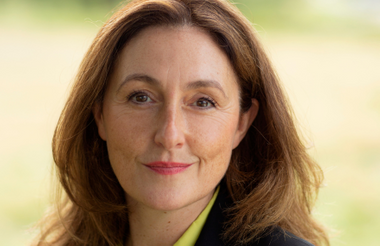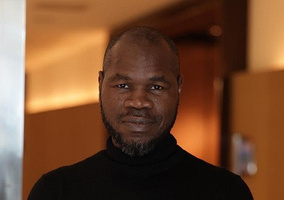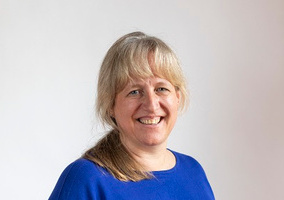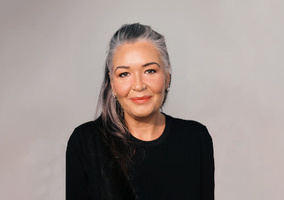For the past seven years, Tanya Steele has led WWF-UK as its first female chief executive.
Steele joined the charity from Save the Children but before that, worked in the private sector for 15 years.
“I started life in the telecoms and tech sector,” she says. “I always wanted to work in social justice, but like many students, you need to get to work and pay off all your debts and everything. So that’s very much what I did.
“It was a very global industry and it was a fast-moving industry at the time, and there was a real opportunity to learn. And I did that for many years. I enjoyed it immensely.”
Steele says it was tough switching from the business world to the charity sector and a number of people advised her to volunteer first.
She volunteered with the British Red Cross and that experience motivated her to apply for “as many jobs as possible” in the charity sector, which she did before joining Save the Children to lead its marketing, fundraising and communications.
“I headed up all the big individual giving, all the big public campaigns as it were.
“It was a very natural place to start because we know that funds are the absolute lifeblood of any mission and organisation and it was a real privilege to get under the skin of that somewhere like Save the Children, and particularly an organisation that took on such a big humanitarian and emergencies mandate.”
Steele was at the international children’s charity for 12 years, leaving as its managing director after a stint as interim CEO. She says it was seeing “the collision between humanitarian issues facing us as people and the environment” that made her decide to move to WWF.
“I kept getting calls from WWF asking if I might consider the CEO role. And I remember at the time wondering ‘what on earth do I know about wildlife? Why would you even want me?’”
But Steele saw “a terrible food security crisis” and no groundwater where she was working with Save the Children and this made her very much consider the impact of the environment on people and wildlife, which prompted her to read a lot of the science, and go for the interview.
Working with a national treasure
Steele says she made two big changes as soon as she joined WWF in 2017.
“One was the way in which we went about our science. And the second was our storytelling.
“So from a science perspective, we’ve been charting the decline of nature very faithfully for decades – 69% of average wildlife populations have left us forever, that’s a really shocking statistic.
“The other thing that we focused on is the storytelling, both in terms of the challenges, but actually what we can do about it.
“One of the superpowers of WWF is our ability to convene and bring that scientific voice and some of the policy solutions.”
WWF has recently worked with broadcasters including the BBC on its Save Our Wild Isles campaign, along with the RSPB and National Trust, which included a film presented by David Attenborough.
“It was a privilege that somebody so iconic, that so well understood, was willing to share with the world, what had happened and what had changed within one person’s lifetime.”
Government ‘off-track’ on environmental policy
In using its science and storytelling, WWF is aiming to influence the government’s environmental policy.
“If we think about this from a political point of view there’s always flashpoints, there’s always changes. But actually, this is a cross-cutting issue that goes way above politics, because ultimately, it’s the very foundation of us being able to live in a healthy society.
“We expect all political leaders to put at the heart of their manifesto how they’re going to tackle the climate and nature crisis.”
WWF’s expectation for the government is to introduce economic incentives as well as the means for local communities to put in place measures to enable nature’s recovery.
“We’ve been pleased by some of that progress in terms of commitment, where we’re looking for more, is in terms of the actual action that flows through.”
Steele says the UK is currently “off track” in meeting its environmental targets “so that’s something that we are working on, alongside other green groups, in terms of calling on the government to step forward and start to make a commitment to get back on track”.
WWF also works to help businesses improve their environmental impact, including their approach to financing activities or how they think about their supply chains, particularly in terms of the food system.
“One of our big initiatives is working with the UK’s biggest retailers to halve the environmental footprint of the average weekly shopping basket.
“That has seven retailers signed up to it reporting every single year and doing activities, both individually and also collaborating, in terms of how can they clean up their supply chains to dramatically reduce that footprint.”
Cost-of-living crisis ‘puts pressure on our costs’
Steele says WWF, like all charities, is operating in a difficult financial climate.
WWF has seen “modest” levels of growth, she says, but the organisation is impacted by the current cost-of-living crisis which “puts pressure on our costs”.
Indeed, WWF’s latest financial review shows income increased by £3.0m (3%) from £91.0m in the previous year to £94.0m. It spent £1.1m more on reading funds (£23.9m) and £9.4m more on charitable activity (£78.5m).
The charity’s fundraising portfolio is a blend of public support in terms of regular donations and legacies, and a level of corporate support, says Steele.
“The larger corporate partners tend to be organisations that we’re working with on what we call ‘transformational change’ in terms of the shifts they’re making, as we may be providing advice.”
The charity also receives some money from philanthropists and “a very modest” amount from government, she says.
“We’re managing. I’d say ‘steady as you go’. But we are pretty grateful for the incredible support that we’ve had so far. We are very, very lucky indeed.
“It is important that the UK public is still very much at the heartland of us as an organisation, so how we hopefully build support and continue to maintain that loyalty is really front and centre – that for me gives us all legitimacy as an organisation.”
Glimmer of hope
Despite some of the climate statistics, Steele is encouraged by the hope of restoration.
“It’s a real privilege to be in this role. It really is. And, I always say there is no greater fight than to bring our natural world back from the brink.”
When she sees steps towards that, whether that’s on a local community level or political, “it is a huge glimmer of hope”.
“We know it’s possible. And that for me is a major priority for us; we can’t just talk about the difficulties, we have to show what is working.”
Related Articles











